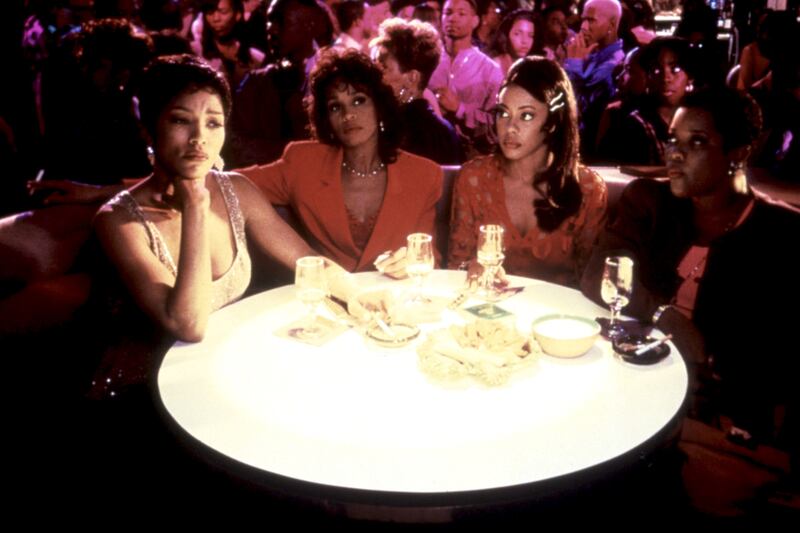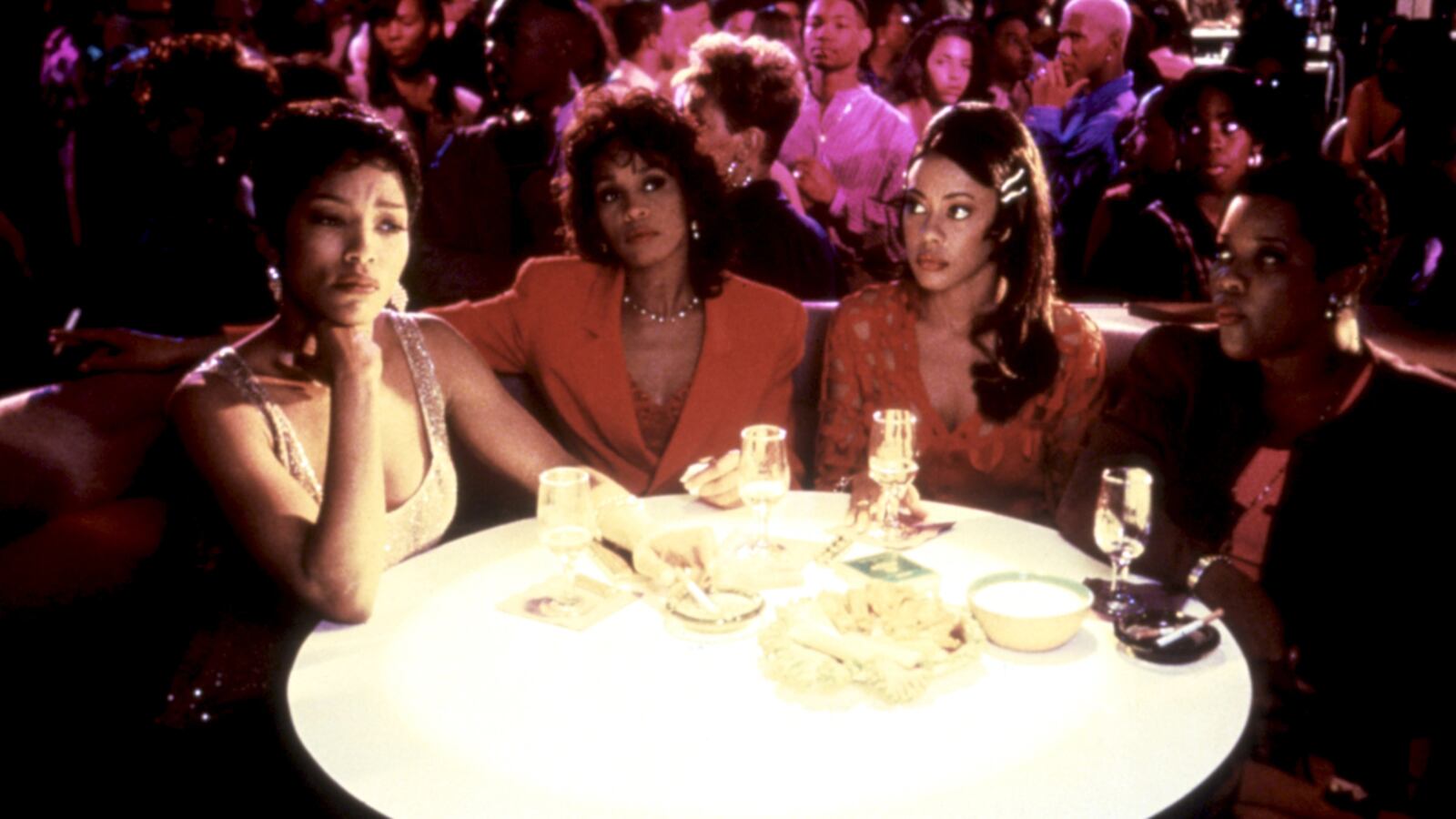Meet Audrey Jones. She is 39, attractive, and multilingual. She’s got a big job—at a multinational consulting company in Washington—but not a big ego. She’s funny, thoughtful and smart.
There’s just one thing missing from Audrey’s life: a husband. “At this point, I thought I’d be married with children,” she says. “I’m trying to get to a point where I accept that marriage may never happen for me.”
Her situation may not be ideal, but Audrey may as well be poster child for a breed of African-American women like her: educated, successful, family-minded, yet persistently single, on a seemingly endless hunt for a middle-class black man to fit into her family portrait. But in a culture where the black male middle-class is shrinking, if not already invisible—one in four black men will end up in jail; fewer than half graduate from high school—Audrey is stuck in the center of what a new book calls the “African-American marriage decline.”
Sociologists have long lamented the marriage crisis among the black poor: African-American women are half as likely as white women to be married, and twice as likely never to marry. But in a new book, Is Marriage for White People?: How the African American Marriage Decline Affects Everyone, Stanford law professor Ralph Richard Banks takes on the black middle-class: women who are outpacing their male peers to a degree more pronounced than in any other racial group.
These aren’t women who’ve chosen independence over coupling up—though there are of course those who do, Banks says—but accomplished women who are too successful to find a black man of their caliber but unwilling to lower their standards for a so-called “blue-collar brother” that could widen the dating pool. These women are more likely to be celibate than any other group in America, and more than twice as likely as their white counterparts to remain childless. “For these women,” writes Banks, “being single is not a freedom they embrace so much as a condition they manage.”

The title for Banks’s book comes from a 2006 Washington Post article, in which “Marriage is for white people” flew from the mouth of a 12-year-old student, in a discussion about the importance of fatherhood. Though it might more accurately be called, “Why Middle-Class Black Women Should Marry White,” it was an anecdote that got Banks thinking. In an economy where women are thriving—and desirable black men are scarce—why do black women stay so loyal to black men?
Black women now receive twice as many bachelor’s degrees as black men; they also are more likely than any other ethnic group to be better educated than their husbands. Marrying down is fine, but why not liberate yourself from the confines of race and date outside the pool? “It’s time for black women to stop being held hostage to the deficiencies of black men,” Banks says. “They should emancipate themselves and not feel as if they have no option but make the best of this bad situation. Black women have been taking one for the team for a long time.”
It’s a solution that is easier said than done, of course: black women have adopted interracial marriage more slowly than any other ethnic group; and it doesn’t take Diary of a Mad Black Woman to know that dating outside the race can—for men, anyway—draw a certain kind of feminine scorn. (As Ebony magazine put it in a 1993 article, a black man choosing a white woman causes black women to “see red.”)
Then there are the other pressures: Does going white mean betraying black men? Selling out? Weakening the black familial institution? These are women who’ve beaten the odds to attain education, power, and capital. Who wants to admit she can’t get a man—or that she even needs one? “My two sisters, both college-educated, both single, were very opposed to me even writing about this, to the point that it strained our conversations for some time,” says Banks. “I think there’s a sense that this hits too close to home, and many women don’t want to hear about it.”
There are also those who do—and many of them confide in Banks their own fears that come with dating “outside.” There’s the worry that white men won’t be attracted to black women; and, in turn, black women aren’t attracted to black men. (People like people who like them.) That white men lack swag: Barack Obama has it, George Bush does not. (You get the point, right?) There’s the worry that a nonwhite man won’t understand the most basic parts of black life and culture: things as seemingly mundane as hair (extensions, straightening, putting a scarf on it at night). Or that the children won’t be “black enough.” “These are all issues that black women confront,” Banks says.
But he’s not here to preach—he is, after all, married to a black woman himself, and is African-American. Rather, he simply hopes to open the discourse, and maybe a few minds. “I just want to lay these issues out there, and once they’re there, you usually find that they’re not as scary as you thought,” he says. As one of Banks’s interviewees put it, “Being unhappily married to a black man does nothing for the race. Why can’t I still be a strong black woman and be married to a white man?” Banks’s answer: you can.






